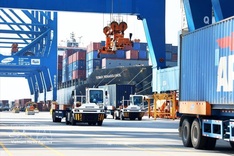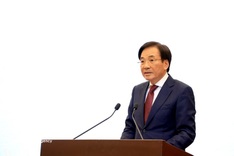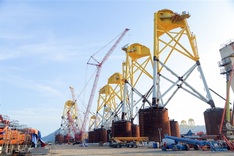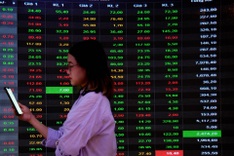Socio-economic development strategies of Vietnam in the next 5 years could enable the country to achieve a growth rate of 8%, according to a statement from Mr. Anoop Singh, International Monetary Fund (IMF) Director of the Asia and Pacific Department.
 |
| The IMF is praising Vietnam’s improvement on economic growth. |
On March 22, the State Bank of Vietnam and IMF held a conference on “Post-Crisis Growth and Poverty Reduction in Developing Asia”. According to IMF, the progress that Vietnam has achieved in recent years is considered a premise for lasting and sustainable growth.
Mr. Anoop Singh said, “Poverty reduction in Vietnam, over the last decade, is higher than other countries in Asia. It is completely suitable to say Vietnam will be able to enhance its growth rate in the near future. With this progression, Vietnam could attain a growth rate of 8% very soon.”
However, according to Mr. John Lipsky, First Deputy Managing Director of IMF, Vietnam is located in the most actively developing area in the world, but still has to overcome many challenges, and one of them is Vietnam’s financial market.
Short-term bank loans being used for long-term development projects (for example, infrastructure projects) in Vietnam, is another problem that IMF specialists had mentioned. In developed countries, long-term loans have been transferred to capital markets.
Commenting on the public debt ratio of Vietnam, representative of IMF said there is nothing to worry about. The fact that the Vietnamese government adopted an economic stimulus package which caused its budget deficit to go up in 2009 is understandable.
Now with IMF having allocated its loans for the increase of foreign exchange reserves in Vietnam, the Deputy Governor of the State Bank of Vietnam Nguyen Van Binh said, “Vietnam has yet to use this provided capital. The State Bank of Vietnam is currently in the process preparing necessary conditions in order to receive the support.”




















